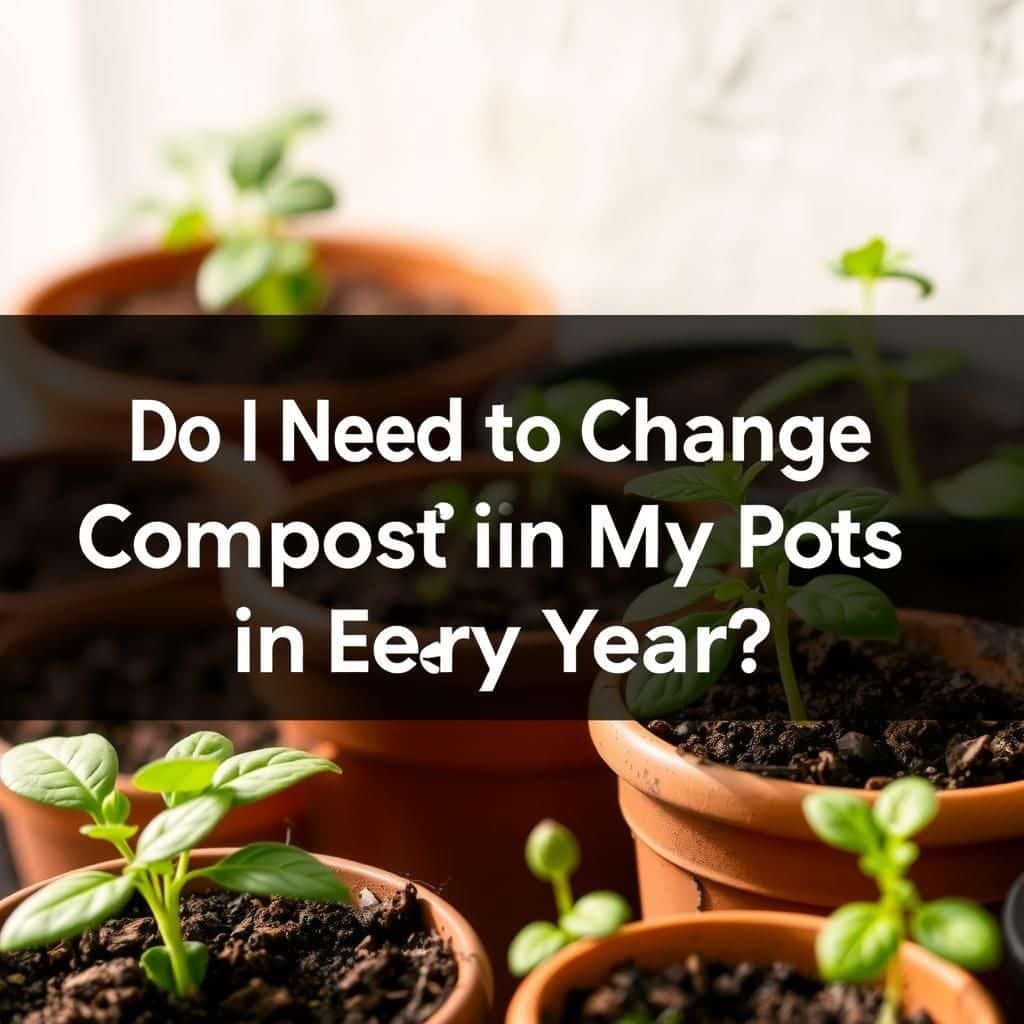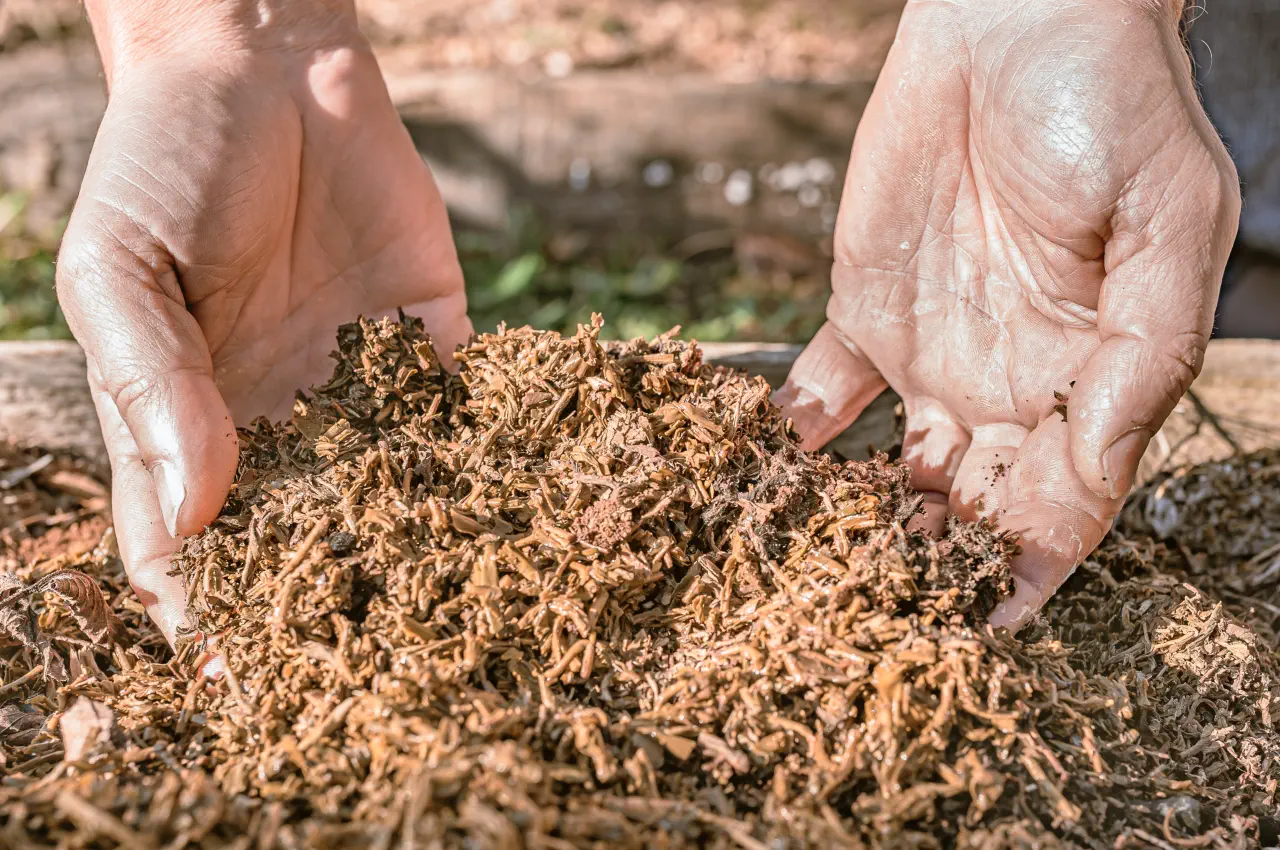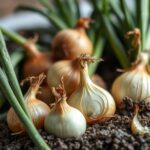Do I Need to Change the Compost in My Pots Every Year? Essential Tips for Healthy Plants

Maintaining vibrant and healthy plants in pots requires careful attention to their soil and compost. One common question among gardeners is whether it’s necessary to change the compost in their pots every year. While some may think regular replacement is essential for plant health, others wonder if it’s really required. In this article, we will explore the importance of compost in potted plants, the factors influencing your decision to change it, and essential tips for ensuring your plants thrive. By understanding the role of compost, you can make informed choices that support the longevity and vitality of your potted plants.
Do I Need to Change the Compost in My Pots Every Year?
Changing the compost in your pots every year is not strictly necessary, but it is highly recommended for maintaining healthy plants and promoting optimal growth. Over time, the nutrient content in the compost diminishes as plants absorb these essential elements and the organic matter breaks down. Consequently, even if the compost appears intact, its ability to support plant growth can decrease significantly. By replacing the compost annually, you provide a fresh supply of nutrients and improve the soil's structure, fostering better water retention and enhanced drainage. Ultimately, this practice can lead to healthier plants and a more vibrant garden.
What is Compost and Why is it Important?
Compost is a rich blend of organic material that results from the decomposition of plant and animal matter. It plays a crucial role in soil health as it enhances the nutrient profile, improves soil structure, increases moisture retention, and encourages microbial activity. Adding compost to your pots helps create a thriving environment for your plants, providing them the necessary resources for growth and resilience against pests and diseases.
Signs That Your Compost Needs Replacing
If you notice signs such as reduced plant growth, yellowing leaves, or poor drainage, it may indicate that the compost is depleted of nutrients. Additionally, an unpleasant odor or the presence of pests can signal that the compost has broken down too much and is no longer beneficial for your plants. Regularly observing plant health and pot conditions can guide you on when to refresh your compost.
Benefits of Changing Compost Regularly
Changing compost regularly ensures that your plants receive an ample supply of nutrients necessary for vigorous growth. It helps maintain optimal soil conditions, which can prevent the issues caused by compacted or old compost, such as poor drainage and reduced air circulation. Furthermore, introducing fresh compost can enhance the microbial diversity in the soil, which contributes to a healthier root system and overall plant vitality.
How to Change the Compost in Pots
To change the compost in your pots, start by removing the plant carefully, ensuring not to damage the roots. Gently shake off any old compost that clings to the roots and check for any signs of disease. Next, fill the pot with fresh compost, making sure to mix in any fertilizers if needed, and replant your plant at the same depth it was previously, then water thoroughly. This process not only refreshes the soil but also promotes better growth and health for your plants.
Composting at Home: Tips for Best Results
Creating your own compost at home is a sustainable way to recycle kitchen scraps and garden waste while producing a nutrient-rich soil amendment. To achieve the best results, maintain a balance of green materials like vegetable scraps and brown materials such as dried leaves. Regularly turning your compost pile will help aerate the mixture and speed up the decomposition process. Additionally, monitoring moisture levels ensures that your compost develops properly, leading to exceptional quality compost ready for use in your pots.
| Aspect | Frequency |
|---|---|
| Changing Compost | Annually recommended |
| Signs of Depletion | Reduced growth, yellowing leaves |
| Benefits of Fresh Compost | Improved nutrients and drainage |
| Home Composting | Regular turning and moisture check |
Should you replace compost in pots every year?

Replacing compost in pots every year is often recommended, but it depends on several factors including the type of plants, the compost quality, and the conditions in which the pots are kept. Generally, there are reasons to consider replacing compost annually:
1. Nutrient Depletion: Over time, nutrients within the compost can become depleted as plants absorb them. Fresh compost can replenish these essential nutrients, supporting plant health and growth.
2. Soil Structure: Old compost can lose its structure, resulting in poor drainage and aeration. By replacing it, you can enhance the soil structure, improving the overall health of the potting mix.
3. Pest and Disease Management: Leftover debris from previous plant growth can harbor pests and diseases. Replacing compost can help prevent these issues and create a healthier environment for new plants.
4. pH Levels: The pH of compost can shift over time, affecting nutrient availability. New compost can help restore the ideal pH balance for optimal plant growth.
5. Organic Matter Content: Compost provides organic matter, which is crucial for soil health. Regular replacement ensures a steady supply of organic matter, contributing to plant vigor.
See also:
Benefits of Annual Compost Replacement
Replacing compost annually can provide numerous advantages for plants in pots:
- Improved Nutrient Content: Fresh compost contains a rich array of nutrients that can enhance plant growth.
- Enhanced Soil Structure: New compost can restore aeration and drainage, preventing root rot.
- Pest Control: New compost minimizes the risk of pests and diseases present in the old compost.
Signs It’s Time to Replace Compost
Knowing when to replace your compost is crucial for plant health. Look out for these signs:
- Stunted Growth: If plants are not growing well, it may indicate nutrient depletion.
- Poor Drainage: If water is pooling, it can signify that the compost structure is compromised.
- Visible Pests: The presence of insects or mold can suggest that the compost has become unhealthy.
Types of Compost to Use
Choosing the right type of compost is essential for optimal plant growth. Here are some options:
- Organic Compost: Made from decomposed plant material, it's rich in nutrients.
- Potting Mix: Often contains peat, perlite, and fertilizers, designed for container plants.
- Homemade Compost: Created from kitchen scraps and garden waste, providing a cost-effective option.
How to Replace Compost in Pots
The process of replacing compost involves several steps to ensure a smooth transition:
- Remove Old Compost: Gently take out the old compost without damaging the roots.
- Inspect Roots: Check the root system for any signs of rot or disease.
- Add New Compost: Fill the pot with fresh compost, ensuring it is well-distributed.
Alternatives to Complete Compost Replacement
In some cases, you may not need to fully replace compost. Consider these alternatives:
- Topping Off: Simply add a layer of fresh compost on top to rejuvenate the nutrients.
- Sifting: Sift through the old compost to remove debris and refresh the mix.
- Soil Testing: Conduct a soil test to determine if a full replacement is necessary based on nutrient levels.
Can you use the same compost year after year?

Using the same compost year after year can be beneficial, but it requires understanding its composition and ongoing maintenance. Over time, compost can lose its nutrient value as it breaks down into simpler compounds. Therefore, while it is possible to reuse compost, ensuring its potency and quality is crucial for continued effectiveness in improving soil health and plant growth.
Benefits of Reusing Compost
Reusing compost can provide numerous benefits for your garden:
- Nutrient Supply: Compost breaks down elements that provide nutrients for plants, ensuring that the soil remains rich.
- Soil Structure: Continued use enhances soil structure, promoting better drainage and aeration.
- Microbial Activity: A well-established compost can support beneficial microorganisms that help plants absorb nutrients.
When to Replenish Compost
While you can use compost multiple times, it is essential to monitor its quality. Consider replenishing your compost under the following conditions:
- After Several Years: If you have used compost for several growing seasons, its effectiveness may diminish.
- Nutrient Testing: Regular soil tests can help you determine if the compost still has adequate nutrient content.
- Changes in Plant Growth: Noticeable declines in plant health might indicate the compost needs replenishing or renewing.
How to Revitalize Old Compost
To maintain the quality of old compost, you can adopt several revitalization techniques:
- Mixing in Fresh Material: Incorporate fresh organic materials like kitchen scraps or yard waste to boost nutrient levels.
- Composting Activators: Use compost activators or worms to enhance microbial activity by speeding up decomposition.
- Moisture Management: Keep the compost adequately moistened, which can help in the breakdown of remaining materials.
Differences in Compost Quality
The quality of compost can vary based on its initial materials and the composting process. Key variations include:
- Feedstock Types: Compost made from nitrogen-rich materials, such as grass clippings, can retain nutrients better than carbon-heavy compost.
- Composting Time: The length of time compost remains in the pile can lead to different levels of decomposition and nutrient availability.
- Temperature Control: Maintaining optimal temperatures affects the breakdown of organic matter and the final nutrient profile of the compost.
Best Practices for Using Compost Annually
To effectively use compost year after year, consider these best practices:
- Layering with Fresh Soil: Combine compost with fresh garden soil to distribute nutrients evenly and prevent nutrient depletion.
- Rotating Crops: Practice crop rotation in your garden to minimize the risk of nutrient imbalances in the soil.
- Regular Monitoring: Continually monitor soil and compost health through visual inspections and soil tests to ensure optimal conditions.
Do I need to add compost every year?

To answer the question , it is essential to understand how compost functions in soil health and plant growth. Adding compost each year is generally beneficial, but several factors influence this needs, including the type of soil, the types of plants being grown, and the existing organic matter within the soil.
See also:
Soil Quality Assessment
Assessing the quality of your soil is a critical step in deciding whether to add compost annually. Regular soil testing can determine the nutrient levels and pH balance, informing you if compost is required.
- Determine Nutrient Levels: Analyze the existing nutrients in the soil to know if it is deficient.
- Check pH Balance: Soil pH can affect nutrient availability; compost can help balance pH levels.
- Evaluate Soil Structure: Healthy soil should have good aeration and drainage, which compost can improve.
Plant Type and Growth Phase
Different plants have varying nutrient requirements, and their growth phases can also dictate the need for compost.
- Vegetable Gardens: Heavy feeders like tomatoes and peppers benefit from annual compost additions.
- Perennial Plants: These may require less frequent compost, depending on their nutrient uptake.
- Seedlings: Young plants benefit from enriched soil, making compost beneficial at the start of the growing season.
Composting Techniques
The method of composting can influence how often you should add compost to your garden.
- Hot Composting: This technique breaks down materials faster, allowing you to add compost annually.
- Cold Composting: Takes longer to produce finished compost; you might need to supplement with store-bought compost in the interim.
- Layering Techniques: Adding compost in layers can enhance soil without annual application.
Environmental Considerations
Environmental factors also play a role in how frequently compost should be added to your garden.
- Climate: In regions with heavy rainfall, compost may wash away faster, necessitating annual application.
- Soil Erosion: Areas prone to erosion may require more frequent compost additions to retain soil health.
- Local Ecology: Understanding the local ecosystem can help determine the best composting routine.
Benefits of Annual Compost Use
Adding compost annually can offer numerous benefits to your garden and soil health.
- Nutrient Enrichment: Compost adds essential nutrients back into the soil for plant uptake.
- Water Retention: Compost improves soil texture, promoting better water retention in dry seasons.
- Microbial Life: Regularly adding compost supports the growth of beneficial microbes essential for soil health.
Is 2 year old compost still good?

When it comes to using compost that is two years old, its suitability depends on several factors including its composition, storage conditions, and overall appearance. Generally, two-year-old compost can still be effective for use in gardening and landscaping, provided that it has been properly managed throughout its aging process.
1. Signs of Good Quality Compost
To determine if your two-year-old compost is still good to use, look for these signs of quality:
- Aromatic Smell: Good compost should have an earthy, pleasant smell. If it has a foul odor, it may be improperly decomposed.
- Texture: The texture should be crumbly and dark, indicating proper decomposition. It should not be clumpy or have large recognizable chunks of organic matter.
- Moisture Level: The compost should be slightly moist but not soggy. Excessive moisture can lead to anaerobic conditions.
2. Benefits of Using Aged Compost
Aged compost, such as two-year-old compost, provides numerous benefits for your garden:
- Nutrient-Rich: It contains a variety of nutrients that are essential for plant growth, promoting better yields.
- Soil Structure Improvement: Aged compost enhances soil structure, improving aeration and drainage.
- Microbial Activity: It supports the activity of beneficial microorganisms that help in plant nutrient uptake.
3. Potential Drawbacks of Old Compost
While two-year-old compost can still be very useful, there are some potential drawbacks to consider:
- Nutrient Depletion: Over time, some nutrients may be depleted, particularly nitrogen, which may require supplementation.
- Weed Seeds: If not processed thoroughly, older compost may still contain viable weed seeds.
- Contamination Risk: There’s a risk of contamination if the compost was made with unsuitable materials.
4. How to Use Two-Year-Old Compost
Using two-year-old compost effectively can enhance your gardening efforts. Here are some ways to utilize it:
- As a Mulch: Spread it around plants to suppress weeds and retain moisture.
- In Soil Amendments: Mix it into the soil to improve fertility and texture.
- For Container Plants: Blend with potting soil to provide nutrients for potted plants.
5. Best Practices for Storing Compost
Proper storage practices are essential to maintain the quality of compost over time:
- Keep it Dry: Store compost in a dry location to prevent excess moisture buildup.
- Aerate Regularly: Turn the compost occasionally to ensure good aeration and microbial health.
- Use Proper Containers: Use bins or bags that allow for air circulation to minimize humidity.
Questions from Our Readers
Do I need to change the compost in my pots every year?
It is not strictly necessary to change the compost in your pots every year, but it is highly recommended. Over time, nutrients in the compost can deplete, making it less effective for plant growth. Regularly replacing or refreshing the compost can provide fresh nutrients and improve drainage.
What signs indicate that I should replace the compost?
You should consider replacing the compost if you notice poor plant growth, water retention issues, or a strong odor. Additionally, if you see a buildup of salt crust on the surface or the presence of pests, it is a clear sign that the compost needs to be changed for healthier plants.
See also:
Can I top up my compost instead of replacing it completely?
Yes, you can top up your compost instead of replacing it entirely. This approach can help to restore lost nutrients while also maintaining the beneficial structure of the existing compost. Just ensure that you mix the new compost with the old to promote a better consistency.
What type of compost should I use for my pots?
For pots, it is best to use a high-quality potting mix that is specifically designed for container gardening. Look for mixes that contain organic matter, good drainage properties, and have added fertilizers to promote healthy plant growth.

If you want to read more articles like Do I Need to Change the Compost in My Pots Every Year? Essential Tips for Healthy Plants, we recommend you check out our Compost category.
Leave a Reply
Related Articles